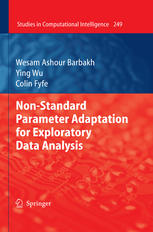

Most ebook files are in PDF format, so you can easily read them using various software such as Foxit Reader or directly on the Google Chrome browser.
Some ebook files are released by publishers in other formats such as .awz, .mobi, .epub, .fb2, etc. You may need to install specific software to read these formats on mobile/PC, such as Calibre.
Please read the tutorial at this link: https://ebookbell.com/faq
We offer FREE conversion to the popular formats you request; however, this may take some time. Therefore, right after payment, please email us, and we will try to provide the service as quickly as possible.
For some exceptional file formats or broken links (if any), please refrain from opening any disputes. Instead, email us first, and we will try to assist within a maximum of 6 hours.
EbookBell Team

0.0
0 reviewsExploratory data analysis, also known as data mining or knowledge discovery from databases, is typically based on the optimisation of a specific function of a dataset. Such optimisation is often performed with gradient descent or variations thereof. In this book, we first lay the groundwork by reviewing some standard clustering algorithms and projection algorithms before presenting various non-standard criteria for clustering. The family of algorithms developed are shown to perform better than the standard clustering algorithms on a variety of datasets.
We then consider extensions of the basic mappings which maintain some topology of the original data space. Finally we show how reinforcement learning can be used as a clustering mechanism before turning to projection methods.
We show that several varieties of reinforcement learning may also be used to define optimal projections for example for principal component analysis, exploratory projection pursuit and canonical correlation analysis. The new method of cross entropy adaptation is then introduced and used as a means of optimising projections. Finally an artificial immune system is used to create optimal projections and combinations of these three methods are shown to outperform the individual methods of optimisation.